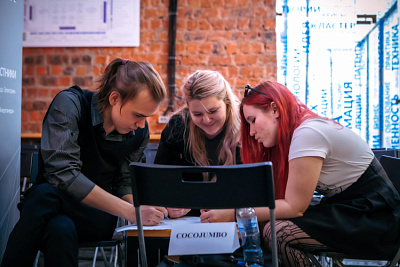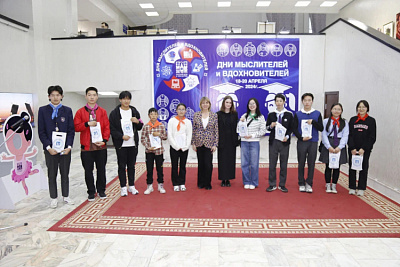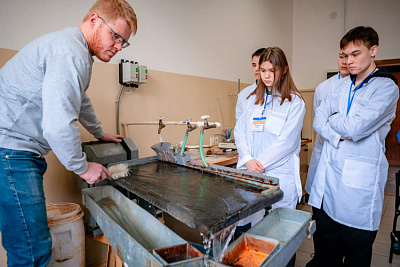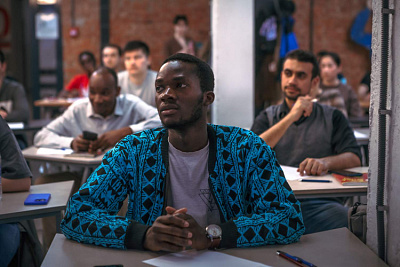INRTU scientists told students about the unique properties of minerals and the implementation of artificial intelligence into geology
A session of scientific reports was held in the coworking of Irkutsk Polytechnic University. INRTU students shared the results of research in the field of studying zeolite-like compounds, creating new materials, and told about the introduction of intelligent systems into geology.
The event was included in the program of the Day of Russian Science, which was organized at the university on February 7-11.
The first speaker was Ekaterina Kaneva, who 15 years ago received the profession of a gemologist at INRTU. Her research interests include crystal chemistry and spectroscopy. Ekaterina Vladimirovna heads the research laboratory of Applied Geochemistry and analytical research methods at Irkutsk Polytechnic University. In addition, within the framework of a grant from the Scientific Council, INRTU oversees the work "Crystal Chemistry, IR spectroscopy and ab initio computer modeling of natural zeolite-like compounds".
According to Ekaterina Kaneva, in order to be "at the cutting edge of science" it is important to create interdisciplinary teams. An example of successful cooperation is the work of scientists from INRTU and IHH SB RAS. For the last two years, they have been investigating zeolite-like materials – rare crystalline substances with a layered and spongy structure. Using the base of the INRTU Mineral Museum, scientists are trying to understand the chemical composition, structure, and unique features of compounds. Knowing such parameters, in the future it is possible to create new, "advanced" materials. The physical and chemical properties of these substances depend on the actual structure, substitutive impurities, external factors (temperature and pressure).
Alexander Parshin, founder of the Siberian School of Geosciences (SSG INRTU), also spoke at the session. He graduated from INRTU in 2008 with a degree in Information Systems and Technologies. Four years later he defended his thesis for the degree of Candidate of Geological and Mineralogical Sciences. He is a laureate of the award of the Ambassador of the People's Republic of China to the Russian Federation in the nomination "IT and Artificial Intelligence".
The author devoted the report to the use of artificial intelligent systems in the tasks of prospecting for deposits. Previously, he conducted a complex of research in the field of robotic unmanned systems for low-altitude remote sensing. The methods proposed by the scientist are designed to replace traditional terrestrial and aerogeophysical methods of solving geological and related problems.
According to Alexander Parshin, people do not have time to quickly process the data of robotic systems. Therefore, the latest software tools - Big Data and machine learning - can help in the analysis, generalization and classification of data. The introduction of such technologies will allow you to transfer part of the geologist's experience to a computer system by teaching it by examples.



